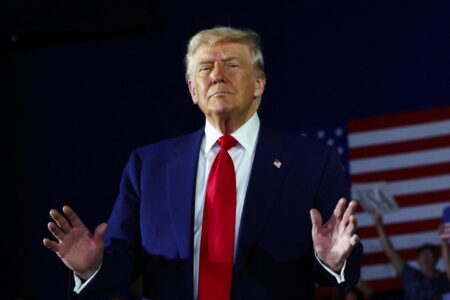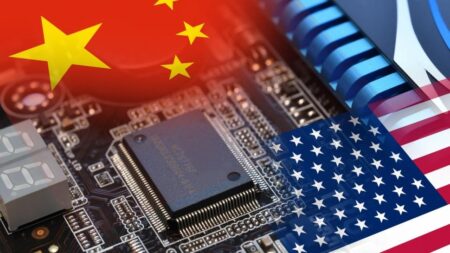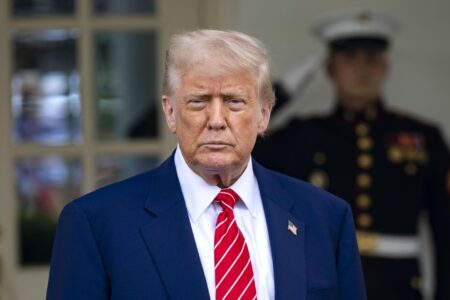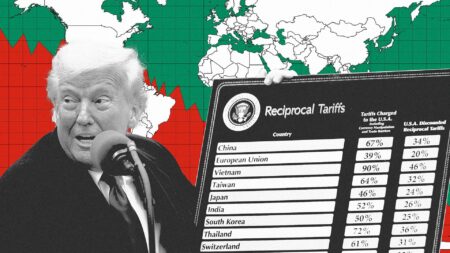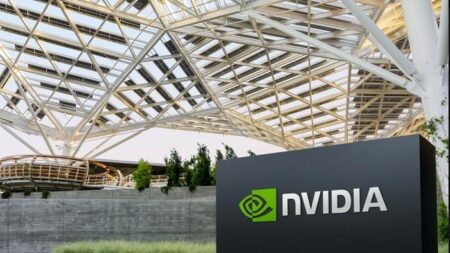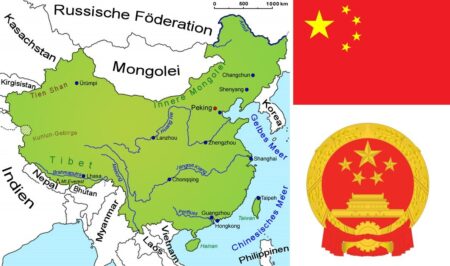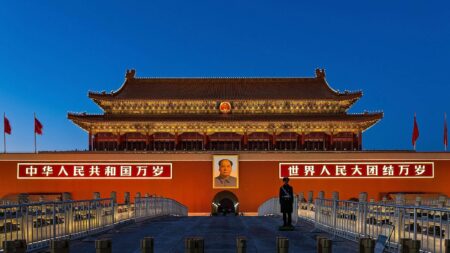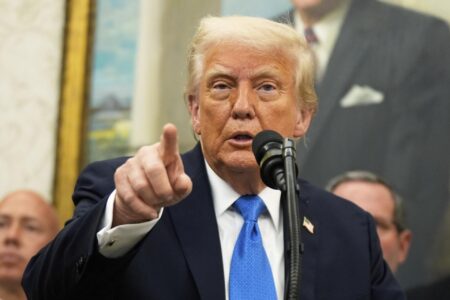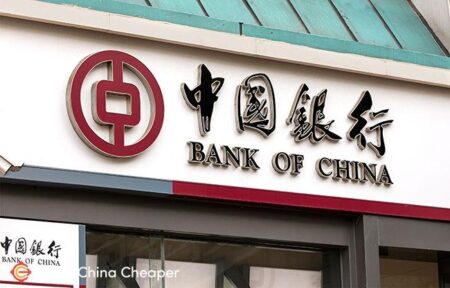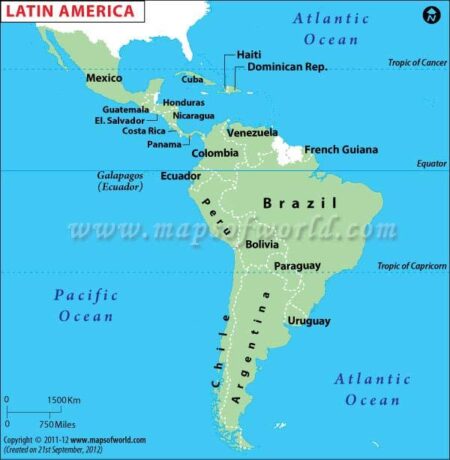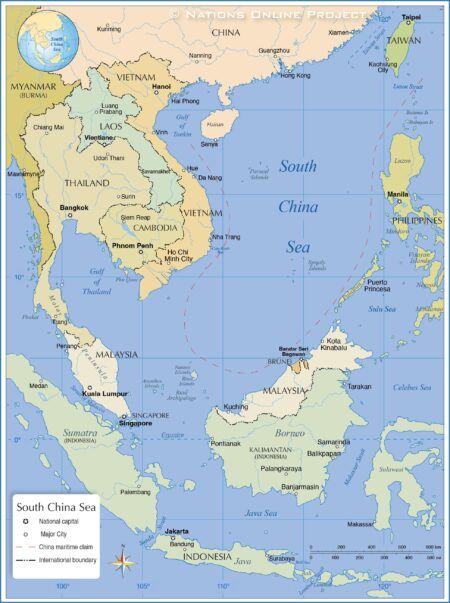Former President Donald Trump claims that China has “totally violated” the tariff pause agreement, accusing Beijing of breaking its trade commitments. This bold accusation intensifies the already heated US-China trade negotiations, Axios reports
Browsing: China
The USWNT takes on China PR in an exciting international friendly showdown! Get ready for top-tier skill, tactical battles, and a chance to see emerging stars shine as both teams prepare for upcoming tournaments. Don’t miss out-stay tuned for kickoff times and lineup updates!
The US is gearing up to intensify tech sanctions on China, zeroing in on subsidiaries of blacklisted companies, Bloomberg reports. This bold step seeks to strengthen export controls and block China’s access to critical technologies
The US has rolled out fresh restrictions on shipments of chip design software, advanced chemicals, and other vital technologies to China, seeking to slow down Beijing’s booming semiconductor industry amid escalating geopolitical tensions, Reuters reports
Former President Trump slammed China for “totally violating” the US-China tariff agreement, reigniting tensions between the two economic giants, according to a report by Yahoo. Trade relations continue to face challenges amid ongoing disputes
Students find themselves at the heart of rising China-US tensions, grappling with visa restrictions and an uncertain future. As geopolitical conflicts intensify, educational exchanges falter, putting academic dreams on hold
The appeals court has upheld crucial Trump-era tariffs on China, sending ripples through Apple and global markets alike. This ruling brought a wave of relief to investors, propelling the S&P 500 higher as trade tensions begin to ease
Nvidia CEO Jensen Huang warns that China’s AI restrictions are threatening America’s tech leadership, potentially reshaping the global AI landscape and ramping up the stakes in the fierce geopolitical technology race
The U.S. government has made a significant announcement: it will start revoking visas for specific Chinese students, driven by rising national security concerns. This decision targets individuals associated with military and surveillance programs, highlighting the intensifying tensions between the two nations.
Nvidia’s revenue from China is set to soar past $6 billion in Q1, even as worries mount over possible export bans that could affect the semiconductor powerhouse. Investors are on high alert, keenly observing how escalating geopolitical tensions might transform the tech landscape.
China is gearing up for an exciting new chapter in its space exploration journey with the upcoming launch of the Tianwen-2 mission! This groundbreaking initiative aims to collect samples from an asteroid, marking a remarkable milestone in China’s quest to push the boundaries of planetary science. With this ambitious endeavor, China is not only showcasing its technological prowess but also reaffirming its dedication to unraveling the mysteries of our solar system
In a recent address, Chinese officials passionately underscored the importance of national unity. However, analysts caution that Beijing’s ambitions may eclipse the diverse interests of its regions. As the government fervently advocates for cohesion, intriguing questions emerge about the genuine balance of power within this vast nation.
China’s bold decision to breathe new life into a World War II airfield in the Caribbean has ignited a wave of concern across the U.S. This development could dramatically alter regional dynamics, prompting serious questions about Beijing’s ambitions right in America’s backyard. Diplomats and defense analysts are on high alert, closely monitoring the unfolding situation
Former President Trump’s recent criticisms of Harvard have sparked significant concern in China, where the university is seen as a prestigious gateway to the U.S. education system. Analysts caution that his remarks could exacerbate the already tense US-China academic relations, adding another layer of complexity to an increasingly fraught relationship.
A revolutionary study from China is shaking up the foundations of evolutionary theory, suggesting that French Lamarckism might just have the edge over Darwinism in explaining how species evolve. This intriguing research challenges long-held beliefs and shines a spotlight on the fascinating concept of adaptive traits being passed down through generations. As a result, it paves the way for exciting new possibilities in the field of evolutionary biology.
As geopolitical tensions escalate, Harvard University’s deep-rooted connections with China are facing increasing scrutiny. Critics warn that these relationships could become a political liability, raising alarms about the potential compromise of national interests in an era marked by heightened concerns over foreign influence in academia.
According to a recent report by the Taipei Times, an astonishing 250 exchanges have been recorded in China over the past month, showcasing a remarkable surge in trade activity amidst escalating geopolitical tensions. Analysts are raising alarms about the potential repercussions for regional markets and overall economic stability.
China’s BYD experienced a sharp 8% drop in its shares following the announcement of substantial price cuts designed to invigorate sales. This bold strategy, intended to sharpen its competitive edge in an increasingly crowded market, has sparked worries among investors regarding profit margins and the company’s long-term growth potential.
Outgoing OAS chief issues a stark warning: a trade halt between Latin America and China could spell disaster for the region’s economies. These remarks highlight escalating worries about economic stability amid rising geopolitical tensions, which threaten to disrupt essential trade flows.
Escalating tensions in the South China Sea have reached a boiling point after recent military confrontations. The ongoing disputes over territorial claims, vital shipping routes, and the quest for regional supremacy are stoking fears among neighboring countries and drawing the attention of global powers.

